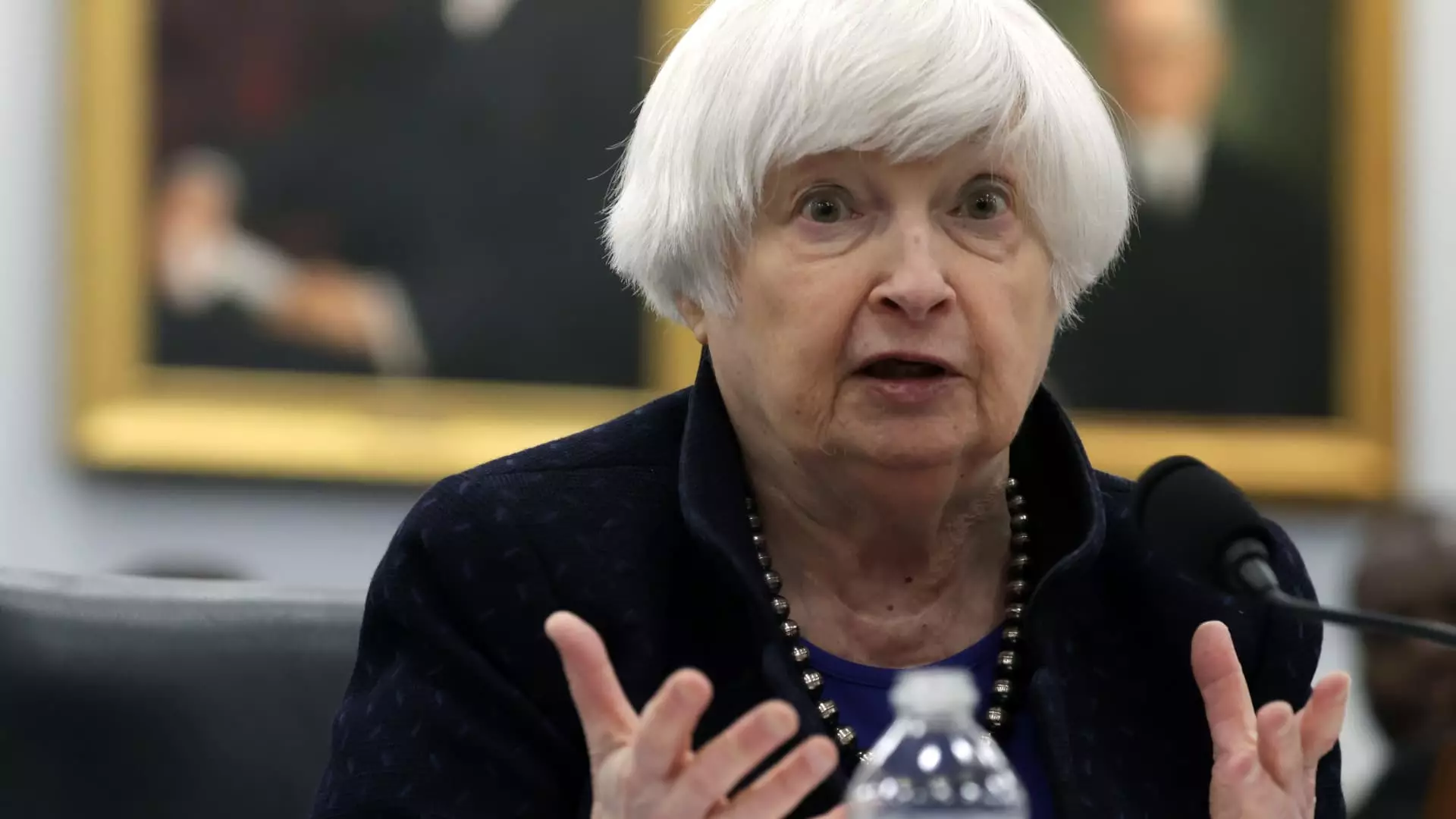In a recent speech at a solar company in Georgia, Treasury Secretary Janet Yellen expressed serious concerns about China’s trade practices in the clean energy sector. Yellen warned that China’s approach to global markets is tantamount to using them as a dumping ground for its surplus clean energy products, such as solar power, electric vehicles, and lithium-ion batteries. This strategy has led to a distortion of global prices and production patterns, making it challenging for the U.S. and other countries to compete in the green manufacturing industry.
Yellen highlighted the adverse effects of China’s overcapacity on American firms and workers, as well as on businesses and employees worldwide. The surplus of Chinese clean energy products being exported at lower prices has created obstacles for the fledgling green manufacturing industries in the U.S. and other countries. This unfair competition has led to market imbalances and hindered the development of sustainable supply chains in the energy sector.
Recognizing the urgency of the situation, Yellen announced her intention to address China’s trade practices during her upcoming visit to the country. She emphasized the importance of putting pressure on Chinese officials to take necessary steps to rectify the issue and ensure fair competition in the global clean energy market. Yellen’s proactive stance reflects the U.S. government’s commitment to safeguarding domestic industries from unfair trade practices that could jeopardize their growth and competitiveness.
While the Biden Administration has ramped up investments in clean energy as part of its efforts to stimulate economic growth, these initiatives are facing stiff competition from China’s well-established clean energy sector. Despite the gains from recent investments like the 2022 Inflation Reduction Act, the U.S. is still playing catch-up with China, which has been pouring billions into clean energy for years. The disparity in investment levels poses a significant challenge for the U.S. in building a robust and self-sufficient clean energy industry.
Yellen’s remarks underscore ongoing trade tensions between the U.S. and China, even as the two countries seek to improve relations. The recent meeting between President Joe Biden and Chinese President Xi Jinping aimed to ease bilateral tensions but has been overshadowed by continued concerns over cybersecurity and trade practices. The Biden Administration’s investigation into Chinese smart cars, citing national security risks, further highlights the complex and delicate nature of U.S.-China relations.
As the U.S. grapples with the challenges posed by China’s dominance in the clean energy sector, President Biden has reiterated his commitment to protecting American industries from unfair competition. Yellen’s call for action against China’s trade practices signals a determination to level the playing field and ensure a more equitable global marketplace for clean energy products. The U.S. government’s efforts to address these challenges reflect a broader commitment to promoting economic growth and sustainability in the clean energy industry.
The impact of China’s clean energy trade practices on the global economy is a complex issue that requires urgent attention and coordinated action from governments and industry stakeholders. By addressing the root causes of market distortions and unfair competition, countries can create a more sustainable and competitive clean energy sector that benefits businesses, workers, and the environment.

Leave a Reply